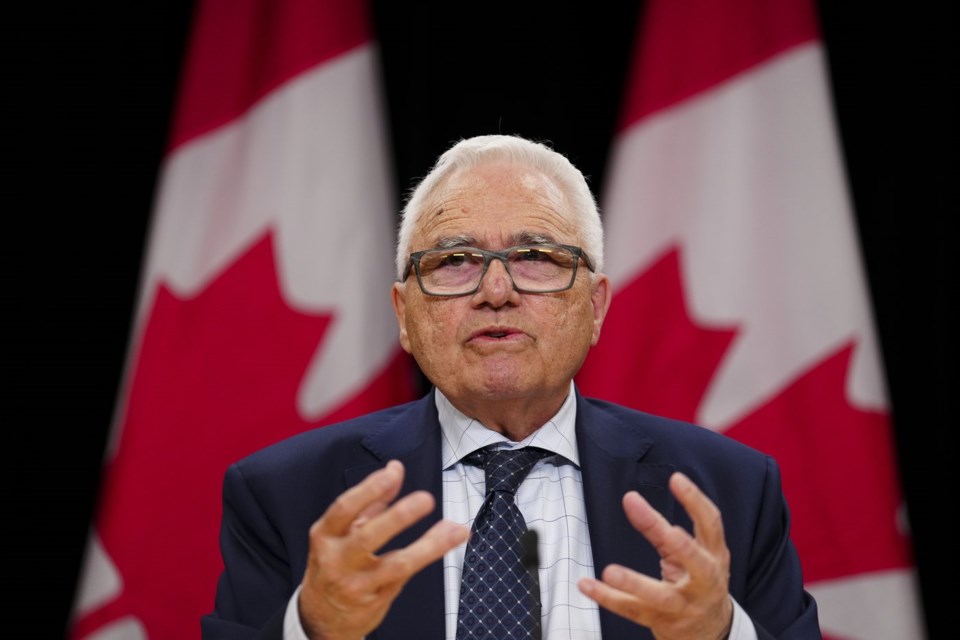OTTAWA ŌĆö sa╣·╝╩┤½├Į's official languages commissioner is expressing concern over Quebec's decision to cap the number of students who can enrol in the province's English-language junior colleges.
Raymond Th├®berge said in a report released Wednesday that he's also worried about the province's decision to raise tuition for out-of-province students at the university level.
"QuebecŌĆÖs English-language post-secondary institutions have grave concerns ŌĆö and I share these concerns ŌĆö about the impact of these measures on their student enrolment and on their financial sustainability," he wrote, adding that two universities are challenging the measures in court.
The cap on junior college, or CEGEP, enrolment was part of Quebec's 2022 language reform, which also mandates additional French classes for students.
Th├®berge writes that Quebec's English post-secondary schools play a valuable role by exposing students to a French environment, even if they're studying in English.
"QuebecŌĆÖs English-language universities, CEGEPs and colleges are part of the solution, not part of the problem," he wrote.
"These institutions can play a leading role in societal efforts to protect and promote the French language. Given their national and international profile, they can be a valuable resource for students who are looking for a post-secondary education experience in English while being immersed in the French language and culture."
The language law states that the share of students enrolled in English CEGEPs must not exceed 17.5 per cent of the province's overall student population.
Th├®berge said the perception that English-speakers in Quebec don't value French as the province's common language is a myth, noting that 71 per cent of Quebec anglophones are bilingual and that most speak French in their daily lives.
In a news conference on Wednesday, Th├®berge urged the Quebec government to reflect on how its policies affect the English-speaking community.
"I think Quebec must take measures to keep French alive on its territory, and in this way also ensure the survival of French across the country," he said in Winnipeg. "But it must always take into account the impact of (its) decisions on the vitality of its minority community."
Elsewhere in the report, the commissioner said he was "very concerned" by a controversial directive that raised concerns the province was restricting access to health care in English, and said he was encouraged by a new version published last month that clearly reaffirmed the right to English care.
"Providing health care to all Canadians in the official language of their choice is a matter of basic safety and respect, and all governments should be striving to do just that," he wrote.
The report also looked at the challenges faced by French-speakers outside of Quebec in obtaining services in their own language, including in daycares. He wrote that staff shortages exist across the daycare industry but are particularly acute when it comes to French-speaking staff.
"The widespread shortage of educators has already made headlines across the country, but francophone minority communities also have to deal with the fact that they have smaller pools from which to recruit staff," he wrote.
He said the shortage of French-language daycare spaces "forces many parents to enrol their children in nearby English-language child care centres, making future generations vulnerable to assimilation."
Th├®berge said he would be paying particular attention to how language clauses included in the federal-provincial $10-per-day daycare deals are implemented, and he encouraged the federal government to ensure there are processes in place to evaluate and monitor their outcome.
This report by The Canadian Press was first published Oct. 9, 2024.
├ēmilie Bergeron, The Canadian Press



